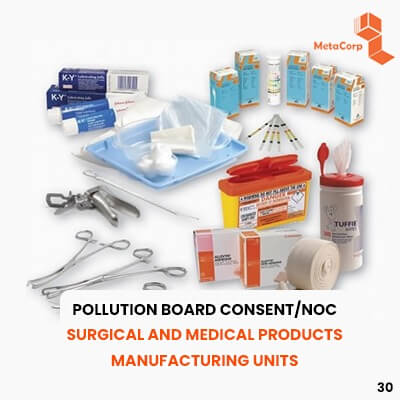

The surgical and medical products manufacturing sectors have experienced significant growth in the last decade. There exists a large gap in the present demand and supply of medical devices in India thereby providing a significant opportunity for their manufacturing in India.
Demand of medical and surgical projects has benefitted government projects which will reach its money value by US$ 50 billion by 2025. Government has also established many schemes which will also increase its demand i.e. Production Linked Incentives (PLI) Scheme for Medical Devices 2020 and establishing medical parks
1. Surging Demand
Increasing number of medical facilities will hike the demand for medical devices in the market. Multiple government initiatives such as ‘Production Linked Incentives (PLI) Scheme for Medical Devices 2020’ and establishing medical parks will augment demand. This sector in India is projected to reach US$ 50 billion by 2025.
2. Export Opportunities
The Indian medical device is driven by 75-80% imports from countries like the US, China, and Germany. Also, India and Russia have set the bilateral trade target at US$ 30 billion by 2025. Trade is expected to increase by an additional US$ 5 billion per annum, with opportunities in pharmaceuticals & medical devices, minerals, steel, and chemicals.
3. Government Policy Support
In October 2021, the government announced plan to draft a new drugs, cosmetics, and medical devices bill for increasing the acceptability of Indian medical devices in the global market.In November 2021, Indian Council of Medical Research (ICMR) collaborated with Indian Institutes of Technology (IITs) to set up ‘ICMR at IITs’ by establishing Centers of Excellence (CoE) for Make-in-India product development and commercialization in the medical devices and diagnostics space.
4. Growing Investments
This sector has attracted significant investments over the years. In FY20, foreign investments increased 98% to Rs. 2,196 crore (US$ 301.01 million) as against Rs. 1,108 crore (US$ 151.87 million) in FY19. FDI inflow in this sector stood at US$ 2.23 billion between April 2000 and June 2021.
1. Determining the status of legal entity
A business owner must first establish a business entity as per his resources, goals, and requirements which can be any of the following:
A sole proprietorship firm means if a single individual is the business owner but generally un recommended for a set up a surgical and medical products manufacturing unit.
A Private/Public Limited Company would be an ideal business structure for this kind of business activity as it allows the expertise and experience of other individuals to add up the overall expertise required for surgical and medical products manufacturing unit.
For more details, click Business Registration
2. Pollution Control Board Certifications for Surgical and Medical Products Manufacturing Unit Business
For more details, please click Metacorp
Consent to Establish (CTE)
For more details, click HERE
The procedure of determination of the category of subject matters of the businesses –
The determination process is typically based on scores. For measuring air pollution marks will be obtained by recognizing various air pollutants and scoring accordingly out of total marks of 40 and for water pollution such scoring will be similarly out of total marks of 40 and the remaining 20 marks out of 100 is allotted for measuring hazardous waste. If this score of a business activity is higher than 60 then it is called as red category of business activity and so on.
How to apply for Pollution Control Certificate
The simple steps can be followed to understand the procedure of applying for a Pollution Control Certificate:
For more details, click HERE
Consent to Operate
The industries categorized under red, orange, and green categories need to apply for consent to establish and consent to operate under the Air and Water Acts. The consent to operate/renewal shall be granted for 5 years for precious metal plating industry as it comes under the orange category. The CTO validity for surgical and medical products manufacturing unit could be for one year per renewal application as this is a red category business activity.
For more details, click HERE
3. CPCB Plastic EPR Certificate
The surgical and medical products manufacturing does use lots of plastics and hence registration is mandatory. Registration for Plastic waste can be through CPCB under the Plastic Waste Management (PWM) Rules 2016 and an online portal has been launched in this regard. Producers, importers & Brand-owners are required to fulfil Extended Producers Responsibility (EPR) for the plastic waste generated due to the products introduced by them in the market.
4. CDSCO Permission for Medical devices Manufacturing
The medical devices & surgical products thus manufactured are to be certified by the Central Drug Standards Control Organization (CDSCO). The CDSCO would lab test, if required, the device and verify the claims made by the manufacturer/importer of medical devices & surgical instruments
5. Trademark Registration
The Trademark certificate can be acquired for which an application has to be made through the online portal of the Trademarks & Patents Office and such trademark must be distinct and innovative. Depending on the distinctiveness, the Registrar might approve and provide the certificate of registration of a trademark. Every 10 years you will have to renew the trademark of your firm.
6. Factory license
The Factory License is a certification that a particular factory complies with the Municipal Laws and Labor Laws of a particular Municipal Area or of a Gram Panchayat. For acquiring the factory license, one must apply to the Office of the Directorate of Factories. The Factory License is issued for one year and it generally requires renewal after every 31st March of the Financial Year.





We are the pioneers in offering environmental consulting services to our patrons, giving us the first mover advantage & keeping us ahead of our competitors.
Very experienced in filing, monitoring & submission of CDSCO Compliances, Drugs Manufacturing & sale guidelines, Environmental Impact Assessment, AERB consulting services, Pollution Control Board CTE & CTO Advisory Services, Waste Management Authorization from State Pollution Control Boards, Fertilizers & Insecticides Manufacturing, Wholesale & Import Compliances
